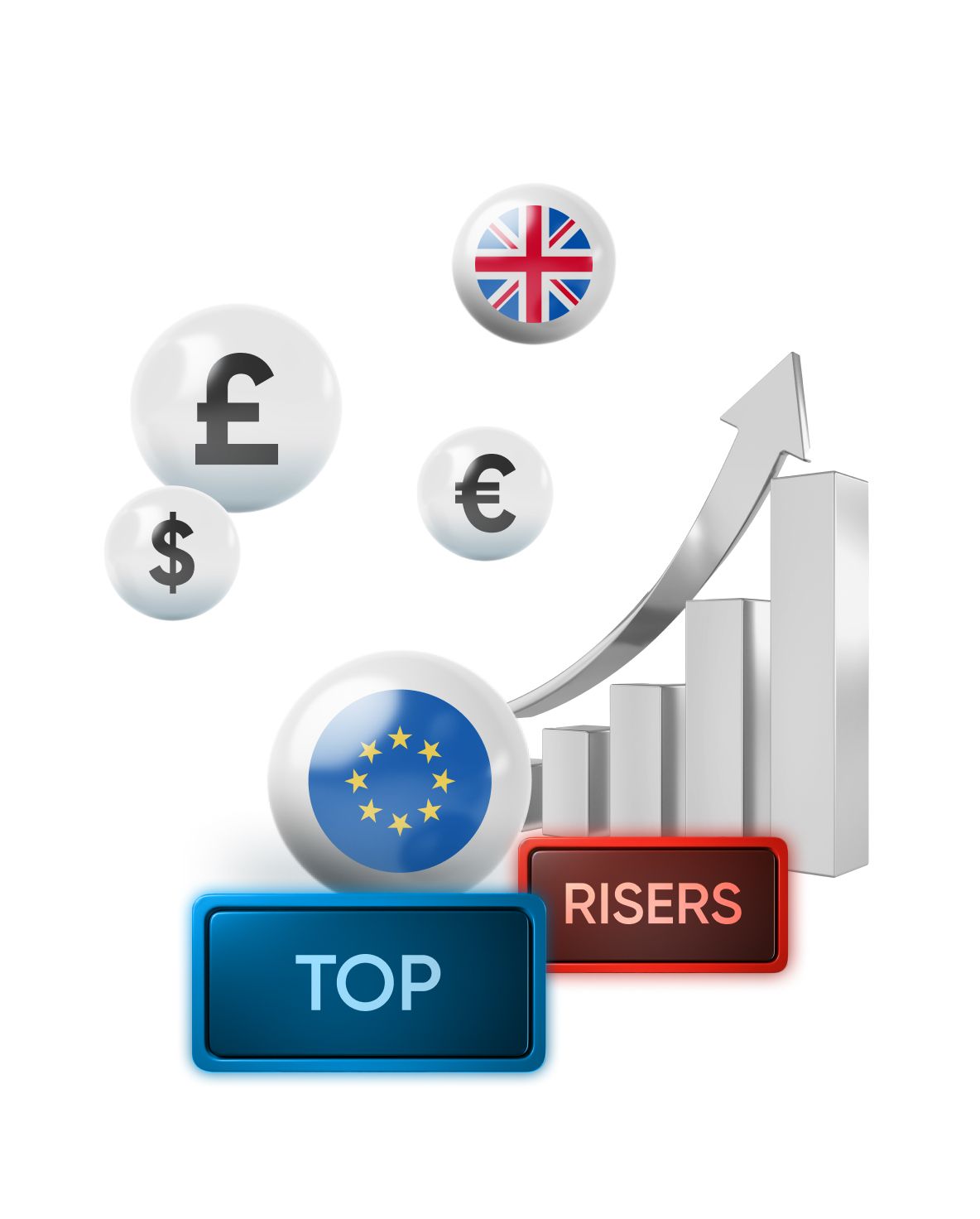Find out which forex pairs have risen most today, and decide which would fit your CFD trading strategy.

Forex is simply short for ‘foreign exchange’. It generally refers to the global marketplace where currencies are traded.
Forex trading – also called currency trading – involves buying and selling international currencies against each other as an exchange rate, with the aim of making a profit from fluctuations in that exchange rate.
Let’s look at a quick example. If you thought that the UK pound was going to increase in value against the US dollar, you could use a derivative like a CFD to open a long position on GBP/USD. If the pound did increase in value against the dollar, you’d make money. If the dollar grew stronger than the pound, you’d lose money.
CFDs are a complex product that gives you access to leverage, which can magnify both profits and losses – so it’s important to understand the risks before you trade. Find out more about trading forex, leverage and more with our helpful guide.
The forex market is the global marketplace in which participants trade currencies with each other. Forex is the world's most active financial market in terms of the volumes traded. It’s also the world’s most valuable financial market, reaching a record $7.5tn worth of transactions per day in 2022.
Being the largest financial market in the world, forex has a wealth of participants that vary widely in nature.
Technically, if you’ve ever travelled to another country and exchanged money, you’ve participated in the forex market. The process of buying one currency with a different currency and being affected by an exchange rate is the market’s basic principle.
Individual traders also participate in the forex market purely for speculative purposes. Rather than buying currency outright, they will often use derivative products – like CFDs, for example – to take a position on the movement of a forex pair like EUR/USD.
Hundreds of large institutions like banks and brokers also trade forex as part of their day-to-day operations. The market is dominated by the ‘big five’: Citigroup, Deutsche Bank, Barclays, JP Morgan and UBS. Together they accounted for over half the global market turnover in 2015.
Trading forex comes with its own set of advantages and challenges. Understanding these can help you decide if forex trading aligns with your financial goals, risk tolerance, and strategy. Here's an overview of some of the pros and cons of trading forex.
Forex is the largest financial market in the world, with high levels of liquidity for the major pairs. This means you can buy and sell many currencies almost instantaneously during market hours without significant price deviations.
Speaking of market hours, forex markets operate 24 hours a day, five days a week. This enables you to trade around the clock, fitting trading into your schedules and time zone.
You’ll find a wide range of currency pairs to trade, including major, minor, and exotic pairs. This diversity means that, given solid research and proper discipline, you can trade in response to geopolitical events, economic data releases, market trends etc.
If you use leverage to trade forex – through a derivative like a CFD, for example – you’ll be able to command a much larger position than your initial capital outlay to open, or margin. But this is a double-edged sword. Leverage can amplify profits, but it also magnifies potential losses.
Likewise, currency values have the potential to be very volatile, fluctuating significantly in a short period. That volatility can have a negative effect on your positions if you’re not prepared for it.
You’ll also need to be clued into what causes that volatility. The forex market is influenced by economic conditions, interest rates, and geopolitical events, among other things. You’ll need to be up to the challenge of understanding these factors and their impact on currency movements.
This list is by no means exhaustive. You should conduct your own research before trading forex to decide whether or not it fits your goals and skill set.